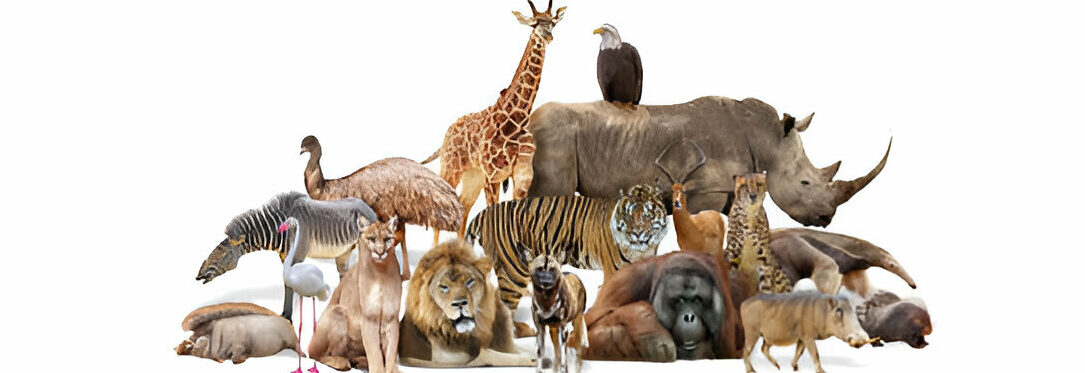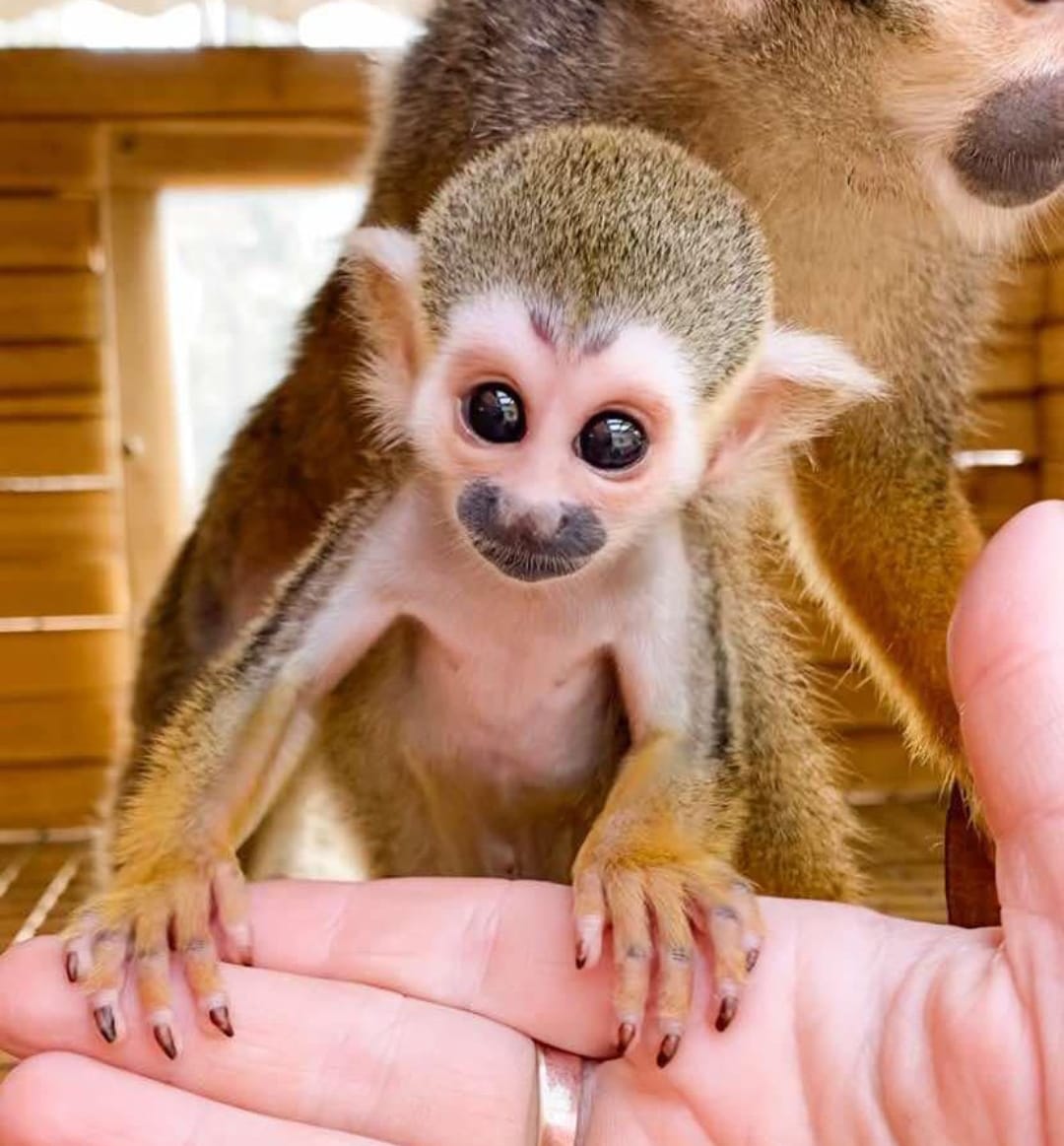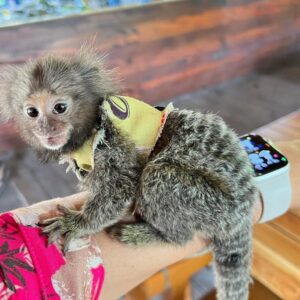Description
The Ultimate Guide to Caring for a Squirrel Monkey: Everything You Need to Know Before Adoption
Introduction
Exotic pets have grown in popularity over the years, with many animal lovers seeking unique companions beyond traditional cats and dogs. Among these fascinating creatures, the squirrel monkey stands out due to its intelligence, playful nature, and striking appearance. However, owning one of these primates is a major responsibility that requires extensive preparation.
This in-depth guide covers every aspect of squirrel monkey care, including their natural habitat, behavior, dietary needs, housing requirements, legal considerations, and the ethical implications of keeping them as pets. By the end, you’ll have a clear understanding of whether adopting one is the right choice for you.
Understanding Squirrel Monkeys: Origins and Natural Habitat
Squirrel monkeys (Saimiri spp.) are native to the lush rainforests of Central and South America, where they thrive in tropical climates. They primarily inhabit the upper canopy layers, using their agility to leap between branches in search of food.
Key Facts About Their Natural Behavior:
-
Social Structure: They live in large troops (sometimes up to 500 individuals) with complex hierarchies.
-
Communication: They use a mix of vocalizations, body language, and facial expressions to interact.
-
Diet: Omnivorous, feeding on fruits, insects, small vertebrates, and plant matter.
Understanding their wild behavior helps replicate a suitable environment in captivity.
Physical Characteristics: What Makes Them Unique?
These small primates have distinct features that set them apart:
-
Size & Weight:
-
Body length: 10–14 inches
-
Tail length: 14–17 inches (used for balance, not grasping)
-
Weight: 1.5–2.5 pounds
-
-
Fur & Coloration:
-
Soft, short fur in olive, gray, or yellowish tones
-
White or yellow underbelly
-
Dark “mask-like” facial markings around the eyes
-
-
Adaptations:
-
Strong hind legs for leaping
-
Opposable thumbs for gripping branches
-
Their compact size makes them seem manageable, but their high energy levels demand ample space and stimulation.
Behavior and Temperament: What to Expect
Squirrel monkeys are highly intelligent, social, and active animals. Here’s what potential owners should know:
Social Needs
-
Highly Dependent on Interaction: In the wild, they live in large groups, so isolation can lead to depression.
-
Bonding: They form strong attachments to their caretakers but may become aggressive if neglected.
Activity Patterns
-
Diurnal (active during the day)
-
Constant movement: Climbing, jumping, and foraging behaviors must be encouraged.
Intelligence & Trainability
-
Can learn tricks and commands with positive reinforcement.
-
Require mental stimulation (puzzle toys, foraging activities).
Warning: They can become destructive if bored, so enrichment is crucial.
Housing and Environment: Creating the Perfect Home
Since these primates are used to vast rainforest canopies, their enclosure must replicate that freedom.
Indoor Enclosure Requirements
-
Minimum size: 6x6x8 feet (larger is better)
-
Climbing structures: Ropes, branches, and platforms
-
Temperature & Humidity:
-
75–85°F (24–29°C)
-
60–80% humidity (use misters if needed)
-
Outdoor Access (If Possible)
-
A secure, predator-proof aviary with sunlight exposure.
-
Must have shade and shelter from extreme weather.
Safety Considerations
-
Escape-proof latches (they are clever and can open simple locks).
-
No toxic plants or sharp objects inside the enclosure.
Diet and Nutrition: Feeding Your Squirrel Monkey Properly
In the wild, their diet consists of:
-
50% fruits and flowers
-
30% insects and small prey
-
20% leaves and seeds
Captive Diet Recommendations:
-
Fruits: Bananas, apples, berries, melons
-
Vegetables: Leafy greens, sweet potatoes, carrots
-
Protein: Mealworms, crickets, boiled eggs, lean cooked meat
-
Supplements: Primate pellets, calcium, and vitamin D3
Foods to Avoid:
-
Chocolate, caffeine, avocado (toxic)
-
Processed human foods (high sugar/salt)
Feeding Schedule:
-
2–3 small meals per day
-
Fresh water always available
Enrichment and Mental Stimulation: Keeping Them Happy
Boredom leads to stress and destructive behaviors. Here’s how to keep them engaged:
Toys & Activities
-
Foraging puzzles (hide treats in boxes or tubes)
-
Chew toys (safe wood or rubber)
-
Swings and climbing nets
Social Interaction
-
Daily playtime (minimum 2–3 hours)
-
Consider adopting a pair (if legally allowed)
Training & Tricks
-
Positive reinforcement (treat rewards)
-
Basic commands: “Come,” “Stay,” “Fetch”
Health and Veterinary Care
Common Health Issues:
-
Metabolic Bone Disease (from poor diet)
-
Dental Problems (if fed sugary foods)
-
Parasites & Infections (regular vet checks needed)
Finding an Exotic Vet:
-
Not all vets treat primates—research specialists beforehand.
-
Annual check-ups are a must.
Signs of Illness:
-
Lethargy
-
Loss of appetite
-
Unusual aggression
Legal and Ethical Considerations
Legal Restrictions
-
Permits Required: Many states/countries demand special licenses.
-
Bans in Some Areas: Check local laws before purchasing.
Ethical Concerns
-
Wild vs. Captive-Bred: Always adopt from reputable breeders, not the wild.
-
Long-Term Commitment: They live 15–20 years—are you prepared?
Alternatives to Ownership
If adopting seems too demanding, consider:
-
Volunteering at primate sanctuaries
-
Sponsoring a rescued monkey
-
Observing them in wildlife reserves
Final Verdict: Is a Squirrel Monkey the Right Pet for You?
✔ Good Fit If You:
-
Have prior exotic pet experience
-
Can dedicate time and space
-
Are financially prepared (food, vet bills, enclosure costs)
✖ Not Recommended If You:
-
Want a low-maintenance pet
-
Live in a restricted area
-
Cannot provide long-term care
Conclusion
Owning a squirrel monkey is a rewarding yet challenging experience. They are not typical pets and require specialized care, but for the right person, they can be incredible companions. Always prioritize their well-being by researching thoroughly before making a decision.
Interested in learning more? Join exotic pet forums, consult breeders, and visit sanctuaries to gain firsthand experience before committing. 🐒💚







Reviews
There are no reviews yet.